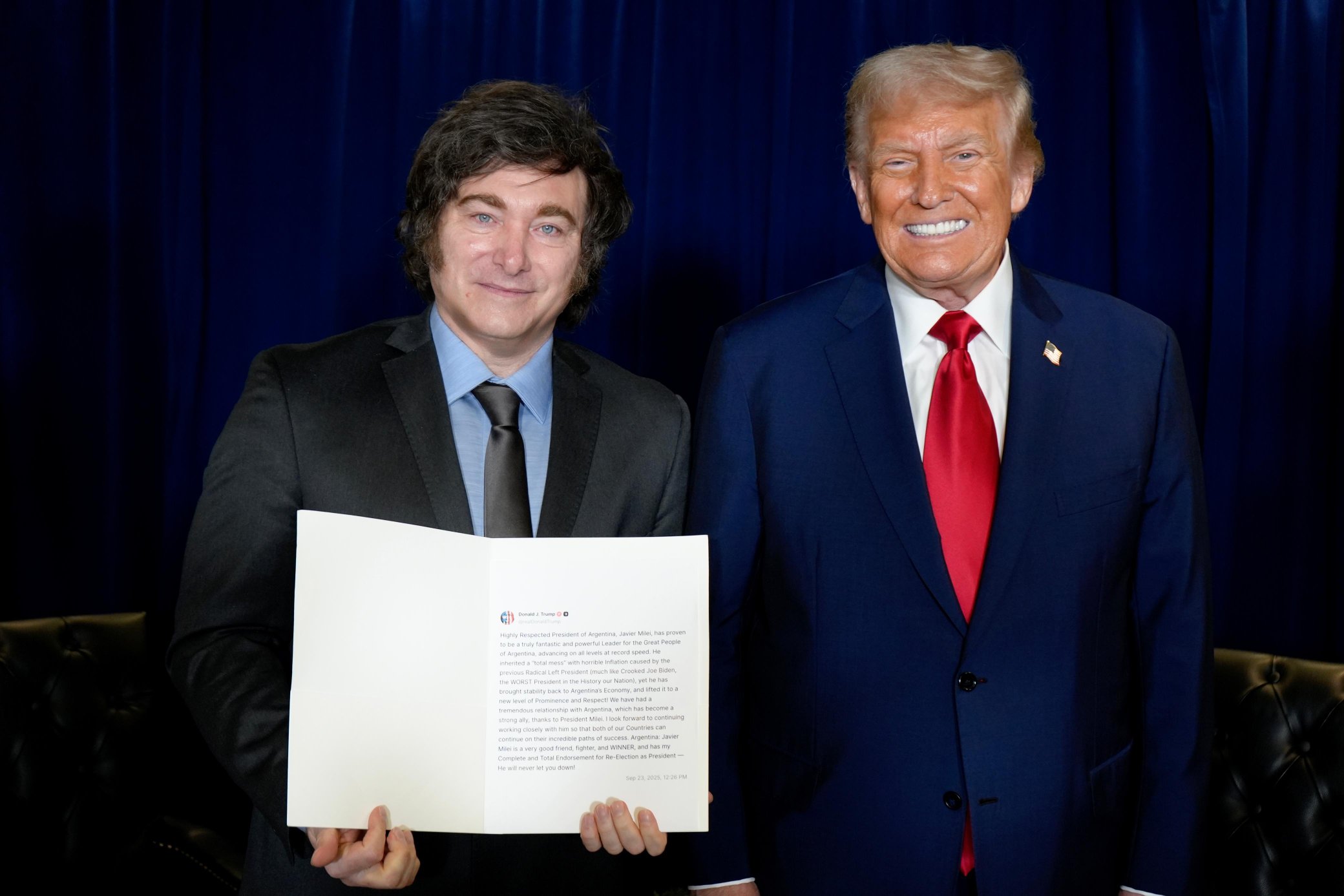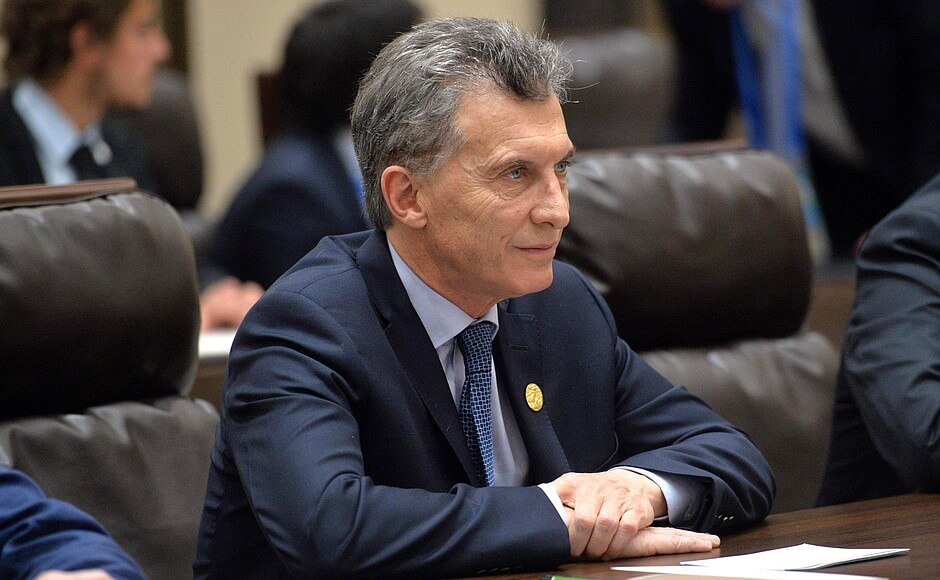Buenos Aires, Argentina — President Javier Milei returned to Argentina from his New York City trip with far more than new photos. After meeting with President Donald Trump and Treasury Secretary Scott Bessent, the libertarian secured a massive aid package from the United States that helped dispel worries about a future default on Argentina’s debt. However, it is still unclear whether American support will help Milei politically at home, while U.S. officials are already dictating economic policy.
Milei’s U.S. visit came at a critical moment, following weeks of economic, social and political crisis, marked by a rising exchange rate, street protests and threats from Congress. On Monday, September 22, Bessent said that the U.S. would do “what is needed” to aid Argentina, easing the pressure on the economic front. Two days later, the Treasury Secretary put a figure to his message, announcing a $20 billion swap line with Argentina’s Central Bank.
“The [U.S. Treasury] stands ready to purchase Argentina’s USD bonds and will do so as conditions warrant. We are also prepared to deliver significant stand-by credit via the Exchange Stabilization Fund, and we have been in active discussions with President Milei’s team to do so,” said Bessent on X on September 24.
After announcing that the Treasury is working “in close coordination with the Argentine government to prevent excessive volatility,” the Secretary said that the U.S. “stands ready to purchase secondary or primary government debt.”
Argentine markets rallied after the announcements, as bonds soared and the exchange rate fell in the first days of the week. The country’s risk index fell from a dangerous 1,500 basis points to under 1,000.
Read more: Argentina turns to US for help to solve Javier Milei’s triple crisis
However, there was more to Bessent’s message. On Monday, September 22, Milei and his economic team cut export taxes on grains from 26% to 0%. The measure was temporary, intended to raise $7 billion, and set to expire by October 31. The goal was met by September 24, mostly by large export companies, leaving out farmers who intended to sell without taxes to finance next year’s harvest.
Bessent’s post also included a section about export taxes. “We are working with the Argentine government to end the tax holiday for commodity producers converting foreign exchange,” the Secretary said.
The Argentine government’s decision drew heavy criticism from the country’s agricultural sector, which has lobbied for lower export taxes for nearly two decades. Treasury support for Argentina also faced pushback in the US, where soybean farmers’ sales to China – also Argentina’s biggest purchaser – plummeted because of Trump’s tariff war.
“First, Trump made us pay higher coffee and beef prices to support a convicted coup-plotter in Brazil. Now, he wants American taxpayers to bail out his friend Milei in Argentina. Trump should stop raising prices for Americans and giving away our money to his corrupt buddies,” Sen. Elizabeth Warren, D-Mass., said in a post on X.
Bessent also received messages from U.S. farmers protesting the situation and rejecting the bailout given to Argentina. And Milei now needs to campaign for the October 26 midterm elections in provinces populated by angry farmers, including districts of the Buenos Aires Province where he already lost a local election by a wide margin.
Read more: Javier Milei’s political party suffers first major electoral defeat in Argentina
Furthermore, Argentina’s economic team reinstated restrictions on the exchange market that had been lifted in April after the $20 billion International Monetary Fund (IMF) deal. People who buy dollars on the official market, supplied by Argentina’s Central Bank, can no longer sell them on private markets through stocks, usually at a higher price.
This decision, combined with the abrupt ending to the tax holiday for agricultural exports, was poorly received by local markets on Friday, September 26. Stocks and bonds once again fell and the country’s risk index rose again over 1,000 basis points.
The agricultural sector, however, helped Argentina’s Treasury, which bought $1.345 billion on Friday, strengthening its position and improving its chances of paying future debt.
Featured image credit:
Image: Javier Milei with Donald Trump
Author: Javier Milei on Instagram
Source: Javier Milei on Instagram










